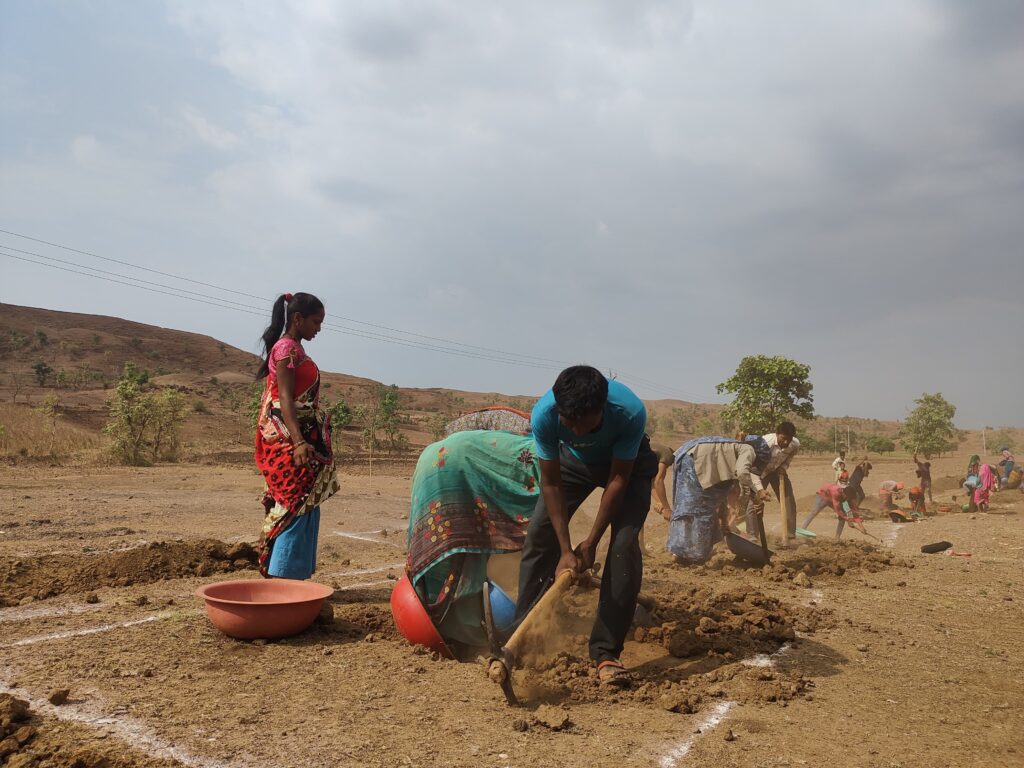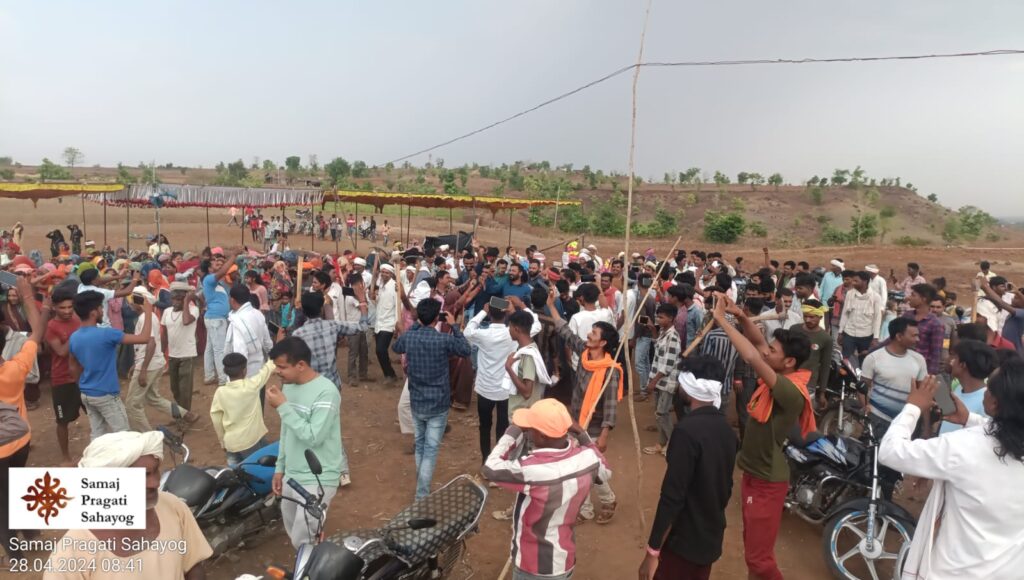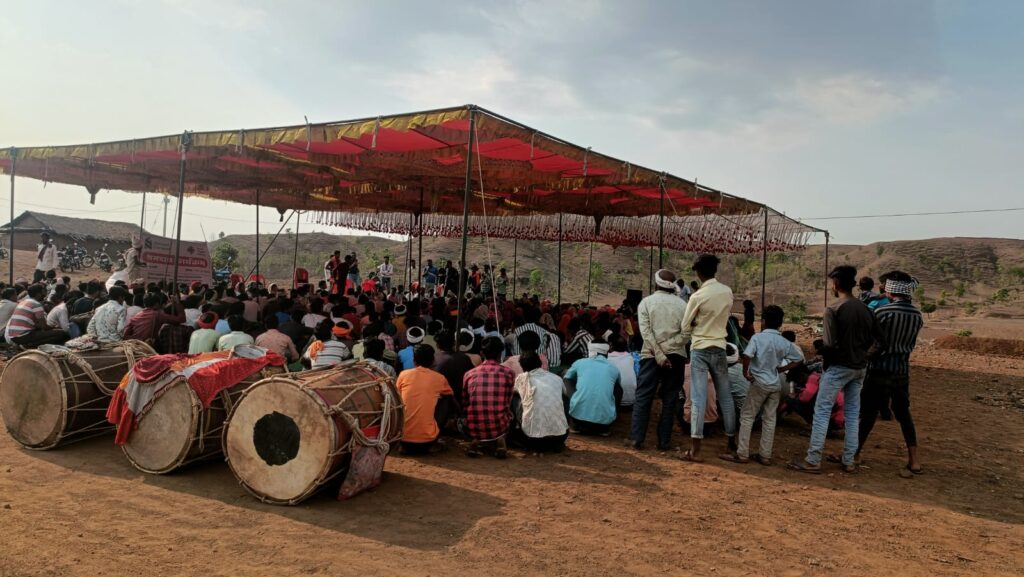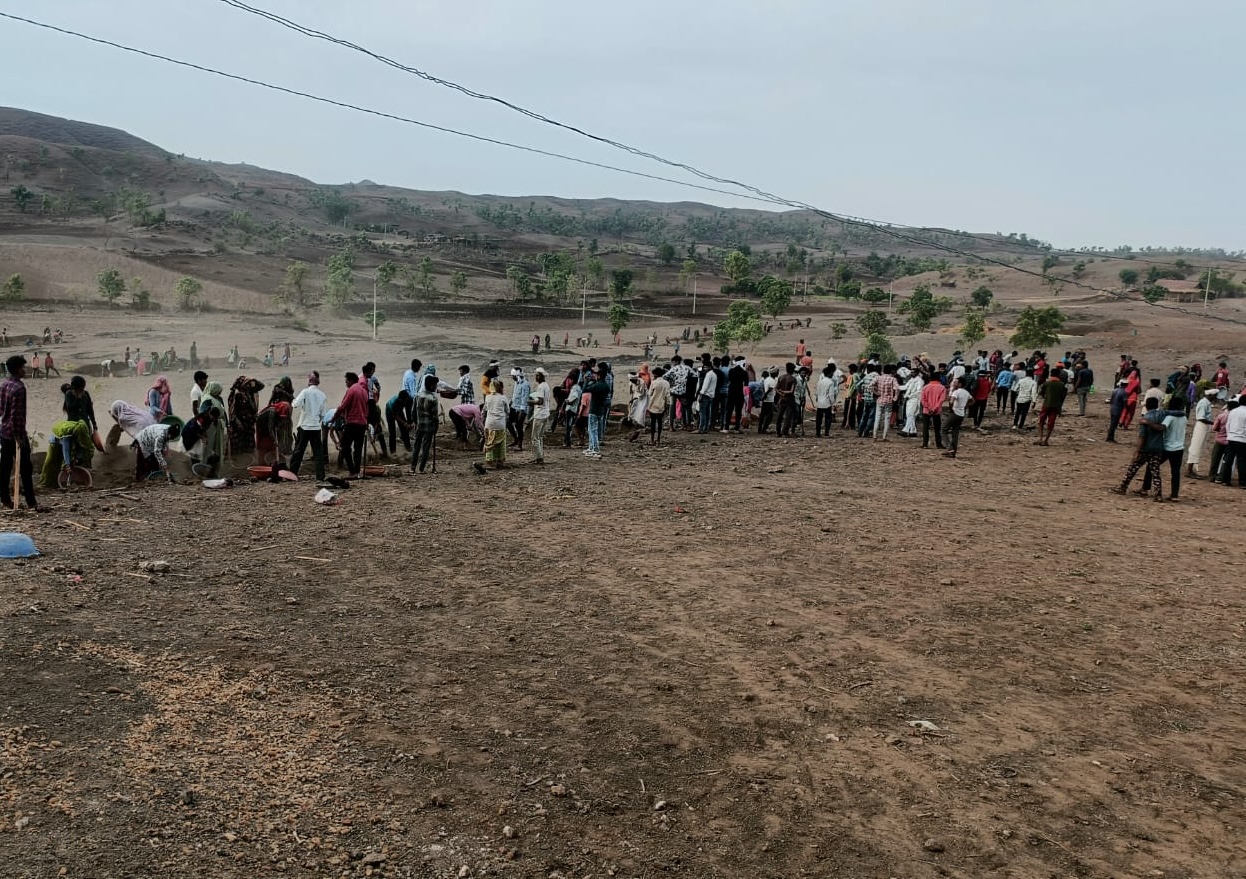Guljhiri, a village in Khargone district, lies spread across some 5 km. of a hilly range in the Bhagwanpura sub-district. It has a total of 147 households, but the absence of livelihood and income opportunities drives most people to migrate to cities.
After sustained attempts over a long period, while Samaj Pragati Sahayog (SPS) is seeing some success with its watershed management initiatives in these impoverished areas, getting off to a start in this distant village was particularly challenging. The villagers had trust issues, wondering if this unknown organisation would cheat them of their money in the name of plans and benefits, or vanish leaving them embroiled in unfinished projects and difficulties. And so they refused to cooperate. However, the SPS team continued its efforts, going house-to-house, having conversations and telling the locals about the organisation’s other activities, till gradually people began to believe in them.

Only two villagers turned up on the first day of work, however. The team refused to give up, and kept the work project – and their attempts to persuade the villagers – going. Even so, the numbers just wouldn’t increase. That was when the team decided to take some villagers on an “exposure visit” to one of its older worksites where their work in watershed management had proven beneficial. Around a month after work began in Guljhiri, 25 women from the village were taken to observe the watershed programme at the Bhikangaon site – where it has not only ended distress migration, but also helped improve agriculture. This visit served to make the people of Guljhiri realise that the work being offered by SPS could be worth their while.
And when the villagers saw how, in the ongoing project, payments were prompt, the daily wage was Rs 243 in keeping with MGNREGA rules, and the process wholly transparent – with pay being commensurate with amount of labour, and the money going directly into the worker’s account – more and more people began turning up for work. Significantly, women and men were being paid equally, which was something quite new in their experience. Many who had migrated for work now returned as well. Eventually, when some 400 labourers began to arrive, the team divided them between four separate worksites that had been identified in advance.

As part of its watershed programme, SPS has also been working with farmers on “med bandi” or farm-bunding. On land that is hilly or sloping, erosion is a natural process as rainwater washes away the fertile topsoil. Farm-bunding aims to prevent such erosion – and to provide villagers with a livelihood opportunity right where they live. The boulder check process used on undulating land is another watershed technique, a construction built from rocks and used to slow down the water run-off. And so, in Guljhiri village, work proceeded on farm-bunding and boulder checks, to improve the land for farming.

An important and integral aspect of the developmental activities implemented by SPS is local people’s voluntary contribution or donation to these in the form of money, materials or labour. Voluntary contribution through labour (“shramdaan”) is a means by which villagers may contribute to their own development by working alongside one another on projects in their own villages. This also gives them an opportunity to chat about common everyday problems, which acts as a bond and fosters a sense of unity. Most significantly, shramdaan creates community resources of which villagers may justly take ownership, while holding the reins of progress in their own hands.
It was this mode of thinking that, in April 2024, led SPS workers to organise a shramdaan programme in Guljhiri, six months after the work-for-pay watershed initiative was launched there. Around 350 villagers came forward to participate in the programme, which began at 7 AM. Before starting work, they made it a festive occasion with traditional snare drums and dances. Nikhilesh Rathod, in charge of SPS’s work in Bhagwanpura, welcomed the farmers. Kirti Kelde and Aniket Chandel spoke about the organisation’s other programmes, and asked for support from those assembled there.

On that day, the villagers managed to do farm-bunding totalling 510 metres. The labour involved was worth Rs 64,000. In the past, people had been wary of the same organisation in which they now so unambiguously reposed their belief, by contributing labour of such high value. Many farmers expressed their gratitude to the organisation, and gave assurances of future support.

Kailash Barde, Sarpanch of Guljhiri, said he had never before seen such large-scale community participation in any endeavour. He hoped the organisation would keep working to make villagers’ lives better, and said they would always be ready to take part in such programmes. SPS workers have been getting similarly positive responses from other villages in the Bhagwanpura sub-district as well.
Writing: Abhishek Chouhan
Source: Aarti Singh and Nikhilesh Rathod
Photography: Kirti Kelde and Vipin Pal

